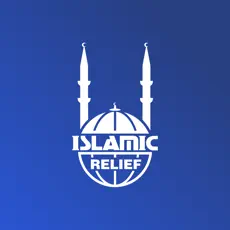In May 2024, Bangladesh was devastated by the destructive Cyclone Remal, which destroyed 35,000 homes, damaged another 115,000, and affected 3.7 million people in 19 districts. More than 50 residents of Bangladesh and India died in the storm, and more than a million people were evacuated as the storm ravaged coastal areas.
Bangladesh is one of the world’s poorest nations, and it frequently suffers from debilitating flooding. It is also host to one of the world’s largest refugee populations. More than 1 million Rohingya refugees were driven from Myanmar to Bangladesh by widespread, systematic violence and persecution over the past few decades. This Muslim minority community resides chiefly in Cox’s Bazar, in makeshift camps crowded with temporary bamboo shelters. People here are reliant on humanitarian aid for all their needs. Cyclone Remal was just one more disaster for these people who have suffered so much—a crisis on top of a crisis.
The cyclone hit the Bangladeshi/Indian border, impacting districts such as Patuakhali, Satkhira, Khulna, and Bagerhat with winds above 110 kilometers/hour and tidal surges of more than 2 meters. In addition to the people who were directly impacted by the storm, another 26 million lost power. At the same time, landslides in Cox’s Bazar region threatened tens of thousands of Rohingya refugees. A devastating fire had spread through the refugee camps a few days before cyclone hit. It was the combination of the two disasters that brought widespread destruction.
Heavy Rains Flood Communities
Unfortunately, the destruction resulting from the cyclone did not end once the storm passed. Due to soil instability and widespread landslides, the terrain of the affected districts was left vulnerable. Further flooding occurred in June 2024, when heavy rains submerged entire communities in northern Bangladesh. Over 1.5 million people were affected in the area covered by the Moulivibazar, Sylhet, and Sunamganj districts. Nearly 75 percent of Sylhet was flooded and included the destruction of rice paddies and other crop areas. This not only displaced residents, many of whom had to suffer through ongoing rain without any shelter, but it also affected crop yields later in the summer and early autumn, greatly increasing already existing food insecurity in the region.
According to Enamul Haque, a program manager for Islamic Relief USA, “Many families, including young children and elderly people, are now sleeping out in the open by the side of roads, with only plastic sheets to protect them from the heavy rain. Their homes have been washed away and they urgently need food, shelter, and other aid.”
Islamic Relief USA Provides Support
In response to Cyclone Remal, the flooding afterwards, and the ongoing humanitarian crisis in the months since the back-to-back disasters, Islamic Relief USA has been working in the area to bring much-needed support to the millions of people who are suffering. Although roads were submerged and the supply routes drastically affected, IRUSA worked to move emergency food kits into the area immediately after Cyclone Remal. Initially, it provided seven days’ worth of rations to 300 families in Satkira. The organization’s focus then turned to Amtali in the Barguna district and Kalapara in the Patuakhali district, the worst cyclone-hit areas of both districts, with a plan to distribute food packets to 500 families and hygiene kits to 1,735 families.
Immediately following the secondary flooding in June, Islamic Relief USA established long-term support centers in Sylhet and Sunamganj, which the organization used as a staging area for the distribution of food packets, fresh water, hygiene kits, and cash grants to an initial group of 5,000 people, with plans to expand support once infrastructure and supplies were in place.
Cyclone, Heavy Rains, and Flooding Wipe Out Residents’ Livelihoods
Heavy monsoon rains have continued to plague Bangladesh since the dual disasters in late May and June, and the livelihoods of thousands of families (many of whom are subsistence farmers and had their crops damaged or completely destroyed) have been wiped out.
Amid this crisis, Islamic Relief USA is expanding support by providing humanitarian relief in the form of much-needed items, including clean drinking water, food and provisions, hygiene kits to help prevent the spread of waterborne diseases, and cash grants to help displaced and affected people to rebuild farms and other forms of livelihood. The organization is also providing support for orphans and families that have lost caregivers.
IRUSA’s Longstanding Commitment to Bangladesh
For years before this spring’s cyclone, Islamic Relief USA has had a strong presence in Bangladesh. In 2022, thanks to donors, the organization was able to provide aid to three-quarters of a million people, including emergency aid for more than 150,000 people, sponsorship for more than 2,000 orphans, and food security and livelihood support for nearly 60,000. IRUSA will continue its lifesaving work in Bangladesh as it recovers from the disastrous flooding. If you wish to help these efforts, go to https://irusa.org/asia/.
